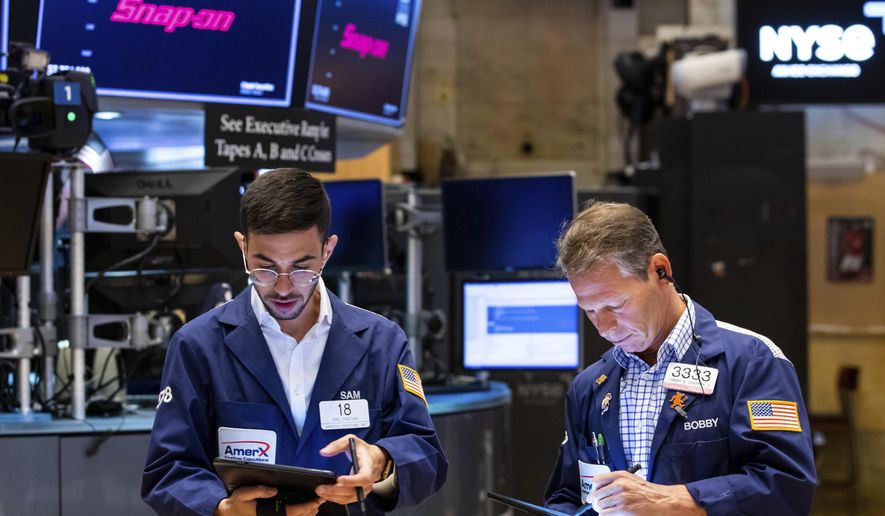June 13, 2022
-The Washington Times
U.S. stocks tumbled at the opening bell Monday as the economy continued to reel from a lousy inflation report and the Federal Reserve plots rate hikes, sparking fears of a recession.
The S&P 500 opened in a bear market, meaning it dropped 20% from its recent high. Bear markets are viewed as a telltale sign of investors’ pessimism about the economy.
The Dow Jones Industrial Average dropped nearly 600 points to start the week and the Nasdaq fell about 2% after the opening bell.
Investors are responding to “growing concerns the Fed is behind the inflation curve, and that the economy is entering a period of stagflation. On top of that, renewed lockdowns in China raise fresh questions over global supply chains,” Nasdaq writers said in an online post Monday.
Cryptocurrencies continued their free fall and overseas markets took a downward turn. Japan’s Nikkei closed down 3% and the yen fell to its lowest level in 20 years, prompting Tokyo to suggest it will step in to reverse the trend.
China’s “zero-COVID” policies of recurring lockdowns have taken an economic toll and, in Europe, the Stoxx Index slid to its lowest point since early 2021.
The U.K. reported its economy shrank in April by 0.3% instead of expanding as predicted.
Declining fortunes on Wall Street and elsewhere prompted “Black Monday” to trend on Twitter. The term refers to the day in October 1987 when the Dow Jones lost almost 22% in a single day.
The costs of goods and everyday living rose to a new 40-year high in May, according to a Labor Department inflation report released Friday, fanning worries about economic growth.
The Federal Reserve will release its new economic forecast on Wednesday and Chair Jerome Powell will set the tone for the markets by outlining plans for rate hikes in the summer and fall.
Economic whirlwinds have been a major drag on President Biden’s first term.
The White House insists it will make headway against the global problem, but critics say the administration ignored warning signs and overheated the economy with stimulus funding in early 2021.




